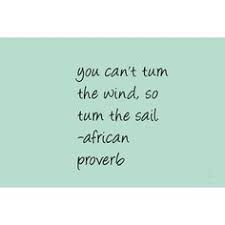If you’re like me, you might also be catching yourself thinking about how things in this country were so different just a few weeks ago. You might be catching yourself amazed and in awe at how fast things can change. I know I have. From athletic events and entire seasons getting canceled/postponed to travel restrictions and schools closing we are all trying to navigate the unknown of this unchartered territory.
As a mental performance consultant and track and field coach, I find myself wondering how I can best serve the athletes that I work with. The best thing I can think of is to take it to a blog – write it out in hopes that there is something they can pull from it to help them move forward. Even if you are not an athlete who is dealing with the loss of your season, a big meet you worked all year for, or simply struggling with what to do right now since you don’t have practice, you can still find these ideas useful. At least that’s my hope.

First, I want you to give yourself permission to FEEL your emotions. What are your emotions around this coronavirus crisis? Maybe you’re upset and frustrated. Maybe you feel confused, hopeless, and even scared. Maybe you simply feel sad about what is going on and the loss that you’ve experienced. Maybe you’re still numb and unsure how you feel. However, you are feeling – it’s OK! There is no right or wrong way to be feeling at this time. We all are going to have different reactions to these unfolding events and we need to be aware of where we are in order to move forward.
A loss is the same as any other loss and we will feel similar stages to the stages of grief such as when we lose a loved one. According to Kubler-Ross the stages of grief are as followed:
- Denial: In this stage, the world becomes meaningless and overwhelming. Life makes no sense. We are in a state of shock and denial. We go numb. We try to find a way to simply get through each day. Denial and shock help us to cope and make survival possible. Denial helps us to pace our feelings of grief. There is a grace in denial. It is nature’s way of letting in only as much as we can handle. As you accept the reality of the loss and start to ask yourself questions, you are unknowingly beginning the healing process. You are becoming stronger, and the denial is beginning to fade. But as you proceed, all the feelings you were denying begin to surface.
- Anger: Anger is a necessary stage of the healing process. Be willing to feel your anger, even though it may seem endless. The more you truly feel it, the more it will begin to dissipate and the more you will heal. There are many other emotions under the anger and you will get to them in time, but anger is the emotion we are most used to managing. The truth is that anger has no limits. At first, grief feels like being lost at sea: no connection to anything. Then you get angry at someone or something. Suddenly you have a structure – – your anger. We usually know more about suppressing anger than feeling it. The anger is just another indication of the intensity of your love for what you lost.
- Bargaining: Before a loss, it seems like you will do anything if only the thing you lost would be spared. After a loss, bargaining may take the form of a temporary truce. “What if I devote the rest of my life to helping others. Then can I wake up and realize this has all been a bad dream?” We become lost in a maze of “If only…” or “What if…” statements. We want life returned to what it was. We want to go back in time: …if only, if only, if only. Guilt is often bargaining’s companion. The “if only’s” cause us to find fault in ourselves and what we “think” we could have done differently. We may even bargain with the pain. We will do anything not to feel the pain of this loss. We remain in the past, trying to negotiate our way out of the hurt.
- Depression: After bargaining, our attention moves squarely into the present. Empty feelings present themselves, and grief enters our lives on a deeper level, deeper than we ever imagined. This depressive stage feels as though it will last forever. It’s important to understand that this depression is not a sign of a depression mental illness diagnosis. It is the appropriate response to a great loss. We withdraw from life, left in a fog of intense sadness, wondering. Depression after a loss is too often seen as unnatural: a state to be fixed, something to snap out of. The first question to ask yourself is whether or not the situation you’re in is actually depressing. If grief is a process of healing, then depression is one of the many necessary steps along the way.
- Acceptance: Acceptance is often confused with the notion of being “all right” or “OK” with what has happened. This is not the case. Most people don’t ever feel OK or all right about their loss. This stage is about accepting the reality of our loss. We will never like this reality or make it OK, but eventually, we accept it. We learn to live with it. It is the new norm with which we must learn to live. Finding acceptance may be just having more good days than bad ones. Instead of denying our feelings, we listen to our needs; we move, we change, we grow, we evolve. We begin to live again, but we cannot do so until we have given grief its time.
People often think of the stages as lasting weeks or months. They forget that the stages are responses to feelings that can last for minutes, hours, or days. We also do not enter and leave each individual stage in a linear fashion. We may feel one, then another and back again to the first one. So if you lost something of value to you, or even a loved one during this crisis pay attention to what feelings you are experiencing and allow yourself time to move through these stages in your own time, at your own pace, and in your own way.
Once you have given yourself time to move towards acceptance we can then start to shift our focus, perspective, and mindset to best serve us during this troubling time. The way I suggest you do this is by focusing on what I like to call, and what is commonly referred to in Sport Psychology, as controlling the controllables.

What does this mean?
It means that we can choose to spend our time and energy on two different things. One is focusing on things that we have no control over, like the wind in the case of the quote above. The thing with this is that we end up wasting our time and energy because the things we focus on are NOT in our control. We lose our power because we rely on our emotions and responses to be decided on by someone or something else. If we want to empower ourselves and be in control of ourselves then we want to stop focusing on things we can’t control and look at what we can control, such as the sail as the quote refers to.
Here is a list of things that we can always control, regardless of the situation.
- Response: You ultimately get to decide how you want to respond to whatever situation is going on. For now, things are getting canceled all around us. We don’t get to control what does and does not get canceled, only how we respond to it. How are you choosing to respond to this? In a negative way, a positive way, or what kind of way? YOU get to decide.
- Preparation: Times are changing and it can be scary or unknown. Preparation breeds confidence though. I do not mean to go out and hoard all of the toilet paper and hand sanitizer you can find. That’s not being prepared, that’s overreacting. What I mean by this is to prepare how you are best going to handle the situation. What kind of routine are you going to establish for yourself? If your sport season is canceled and you want to keep up your fitness – create a fitness plan! Or maybe you decide to sit on the couch for the time being. You decide how you are going to plan your time off.
- Connecting: Even though we physically should be isolating ourselves from large groups of people it doesn’t mean we need to shut out the outside world. We can still find creative ways to connect with others whether that’s through social media, phone calls, or using virtual meetings or workout classes. If you’re an athlete who is planning to work out regularly, find a friend who can meet up with you in a zoom meeting, google hangout or facetime and you can get your sweat on together. Keep each other accountable during this time and support each other through it. During these times we need each other most!
- Attitude: How do you want to spend these next few weeks, or at the worst months? We can’t control the amount of time it will take to get this virus under control (besides listening to the CDC recommendations,) but we do get to control our attitude about it. Are you going to sulk and feel sorry for yourself during this time with a poor attitude while complaining about the situation that is out of your control? Or do you want to remain hopeful and focused on crushing your goals even though you may have to modify and adjust what those goals look like. I would rather choose the second one. Let’s make the most of this time with the best attitude we can bring because like most things that are going on in the world right now, it’s out of our control. So let’s focus on the few things that we can control.

I hope you found this blog useful and took away one or two things to help you get through this time. Establish a routine for yourself and stick to it the best you can. Use this time to tackle that “to-do” list for projects around your house. You finally have the time to get it done! Read that book that you never got to finish. Call up that friend or family member that you have been meaning to catch up with. This time is yours – how do you plan on using it? That’s also in your control. 🙂
